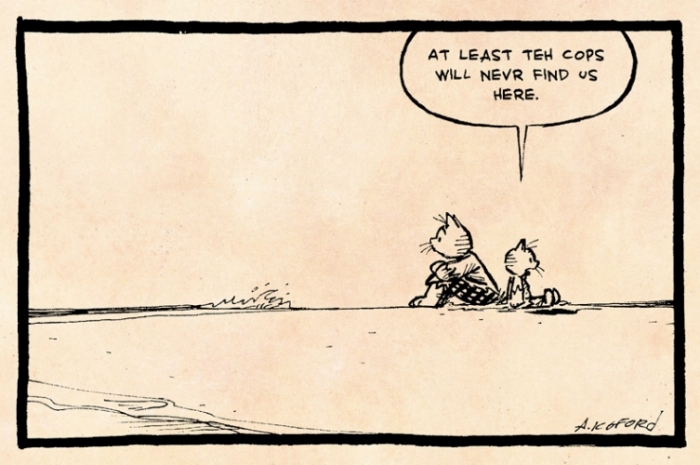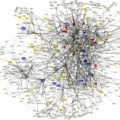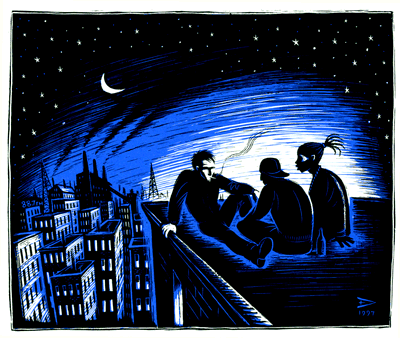An ongoing collective project working toward a world without police. Some of the efforts of this Santa Cruz, California workgroup include CopWatch, know your rights, police accountability, alternatives to calling the police, and education about police, courts, and jails.

I helped create and sustain this workgroup in 2011.
One event, for instance was the World Without Police BBQ in which we asked and discussed the following questions:
- What services are police providing that we need? Are there alternatives?
- What are police failing at? How could we do better?
- What would a world without police and other coercive authority look and feel like?
- What situations would you currently call the police? What are some alternatives?
- What can we do right now if police obsolescence is our goal?
- What are your own questions/issues/challenges?
Here is a list of ideas that came out of the great discussion at the World Without Police BBQ:
- Green porch lights – someone reported that in their town, people put up green lights on their porches to signal that their house is a safe space that people can come to when they need help. This turned into the Blue Light Safety Project.
- Know your neighbors – when we are connected to each other and to our neighbors we don’t need police.
- Bake pies – What better way to feel connected to your neighbors? Bake them pies!
- Ask a favor – similarly, when people do small favors for each other, they feel more connection. Borrow a cup of sugar for the pies you are baking!
- Oppose anti-homeless laws – cops are enforcing the criminalization of homelessness and poverty
- Guerilla benches! Santa Cruz is steadily removing public benches because they’ve found that aesthetically displeasing people use them. Replace them here and here!
- Make cops unwelcome – in general, by demonstrating that CopWatch has its eyes on police, and in particular, by making police know they are unwelcome in radical spaces and homes
- Work on ways to make people safe – safe and secure people don’t need police
- Share cop stories – tell your stories about your experiences with police
- Share success stories – tell your stories about alternatives to police
- Crisis response team – create a team or infrastructure to respond to crisis, kind of a DIY 911
- Specialized conflict resolution – rather than a catch-all response team, teams specialized to handle specific issues like sexual and intimate violence
- Study transformative justice – this general conflict resolution strategy focuses on healing and root causes
- Thinking locally (not like a state) – any solutions to problem can be locally focused, and do not have to take whole regions and nation-states into account
- Discover people’s needs – when people’s needs are met, they are far less likely to resort to antisocial strategies
- Address issues of poverty – poor people sometimes have to resort to crime just to survive
Hopefully, this gives you a flavor of the work this workgroup was doing.




